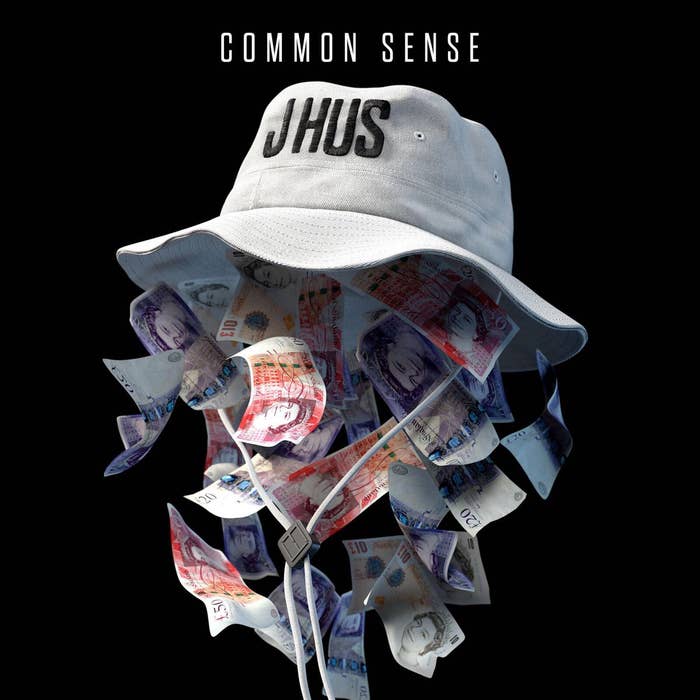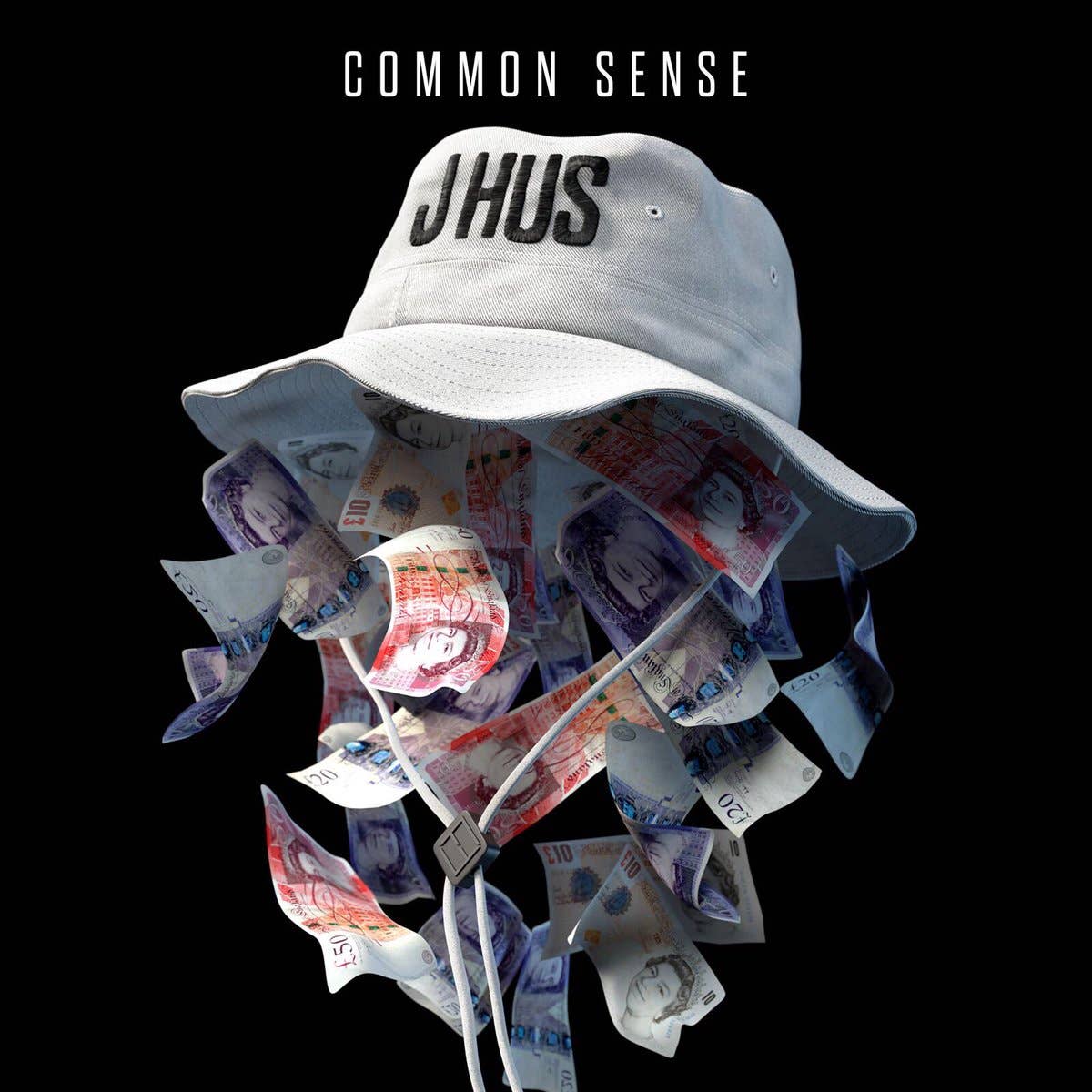
"I like this song a lot," my mum said to me as I played her "Did You See" prior to the release of J Hus' Common Sense LP, and if the rapper's return to public life since the release of this song has taught us anything, it's that no matter what the content of the bars are, if it sounds good, people will listen.
A lot has happened since J Hus dropped his 2015 breakout single, "Dem Boi Paigon", namely that he was stabbed while on tour and found himself in jail months later for coming to terms with the realities of being a star in the hood, having carried a weapon presumably for protection more than anything else. These facts aren't a mere side note, but the very experiences that have informed Hus' artistry and themes that he explores. We can often point to our complex realities and daily existences as a reason to escape into music that doesn't necessarily reflect those experiences.
In a post-EU Britain, the son of a West African immigrant gracing the covers of magazines and performing at the PFA Awards speaks volumes. Hus is the type of person The Daily Mail deplore, yet as his star continues to ascend, his allure grows and so does his fanbase, with everyone from roadmen to esteemed TV journalists locked in to his sound. If ever there was a track that sets the tone for such a majestic debut album, that represents not only an arrival but a reshaping of what British music can sound like, it's "Common Sense". As the distorted intro opens up the song and album, you could easily mistake "Common Sense" for belonging on a Rick Ross project.
In his recent FADER cover story, J Hus spoke about growing up listening to 50 Cent and it's clear just how much the Queens, New York MC has influenced him. Again, on "Common Sense", Hus interpolates a 50 lyric from his Ja Rule diss track "Back Down": "You're not popping, never popped nuttin' / My nigga, stop bluffing," he raps, a discernible sign that the new generation of artists are inspired by the sounds of their adolescence, as opposed to music from previous decades. After all, he's only 21.
J Hus' feature on Stormzy's Gang Signs & Prayer cut, "Bad Boys", was a reminder that Afrobeats isn't the only sound that he has in his locker. "Clartin'" sees the Stratford rhymer lean towards a patois-infused drill theme, which is one of the earliest indications that, in reality, the J Hus sound is whatever he wants it to be. That much is clear as the 17-track debut progresses onto the more introspective and vulnerable "Leave Me". Incorporating a plethora of sounds on one album is no easy feat, and yet the sequencing on Common Sense reveals that J Hus is more than aware of the importance of ensuring the mood remains steady. Especially as the pace picks up when song of the year, "Did You See", comes in as the sixth track.
On the garage-leaning "Plottin'", J Hus straddles the line between hood anthem and party track and executes it so precisely that a listener's only reaction would be to bop a head, or even break a smile at his playful tone and bars. For someone who's known to be reserved off wax, hearing him display a confident poise through music is warming; this is a man who doesn't want to let his recent past inhibit his transformation into the star he's due to become.
And when he says he's nothing like we've heard before, he tells no lies. Common Sense is far from being an 'Afro-rap' album, which reveals to us that boxing him will only stifle his growth rather than accommodate. With each revisit to past and non-British sounds, J Hus provides us with neo-iterations. "Fisherman", for example, could easily be heard in a hall party, but perhaps what makes it so affable is the nostalgia it conjures, highlighting the duality that many diasporan kids such as Hus have experienced. Songs like these reflect a second generation that spent their adolescence balancing both Britishness and African identity.
We often joke about who artists make music for on Twitter, but if J Hus makes music for anyone, it's for those kids who spent their weekends at African hall parties in London while navigating road life and a country that often doesn't acknowledge our experiences. Common Sense is what happens when the two worlds collide.
4/5

